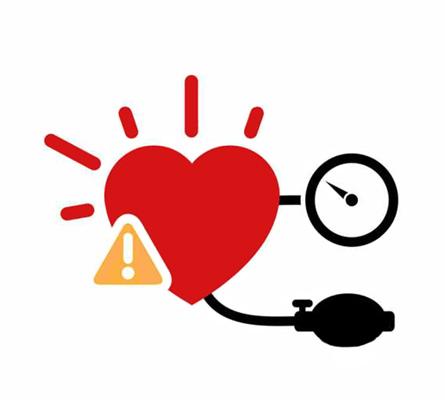You are here
Noisy workplace tied to high blood pressure and high cholesterol
By Reuters - Apr 11,2018 - Last updated at Apr 11,2018

Photo courtesy of safetyfirstgroup.co.uk
Workers who are exposed to a lot of noise on the job are more likely to develop high blood pressure and elevated cholesterol, a US study suggests.
While noisy jobs have long been associated with hearing difficulties, the current study offers fresh evidence that louder work conditions might contribute to risk factors for heart disease as well.
“A significant percentage of the workers we studied have hearing difficulty, high blood pressure and high cholesterol that could be attributed to noise at work,” said study coauthor Elizabeth Masterson of the National Institute for Occupational Safety and Health in Cincinnati, Ohio.
About 22 million US workers are exposed to loud noise on the job, Masterson said by e-mail.
“If noise could be reduced to safer levels in the workplace, more than 5 million cases of hearing difficulty among noise-exposed workers could be prevented,” Masterson added. “This study also provides further evidence of an association between occupational noise exposure and high blood pressure and high cholesterol, and the potential to prevent these conditions if noise is reduced.”
Noise is thought to increase heart risks by causing stress, which in turn triggers release of stress hormones like cortisol, and changes in blood vessels and heart rate, the study team notes in the American Journal of Industrial Medicine.
For the study, researchers examined nationally-representative survey data from 22,906 adults who were employed in 2014.
One in four workers reported exposure to occupational noise at some point in the past, and 14 per cent had experienced loud work conditions in the previous year.
Industries with the most noise exposure included mining, construction and manufacturing.
Overall, 12 per cent of participants had hearing difficulties, 24 per cent had high blood pressure, 28 per cent had high cholesterol and 4 per cent had experienced a major cardiovascular problem like a heart attack or stroke.
After accounting for participants’ other risk factors, the researchers attributed 58 per cent of the cases of hearing difficulty, 14 per cent of the instances of high blood pressure and 9 per cent of the elevated cholesterol cases to exposure to occupational noise.
The study did not, however, find a clear link between noisy work conditions and heart disease, heart attacks or strokes. It is possible there were too few people with these medical issues to determine whether the conditions might be associated with occupational noise, Masterson said.
Hearing difficulty was linked to all three heart conditions, and it is possible that both occupational noise exposure and hearing loss might independently influence the risk of heart problems, she added.
The study was not a controlled experiment designed to prove whether or how occupational noise exposure might directly cause risk factors for heart disease like high blood pressure or elevated cholesterol or lead to heart attacks and strokes.
Another drawback is that researchers lacked data on the intensity or duration of noise exposure, the study team notes.
“The study itself does not establish a cause and effect relationship between noise exposure and the coronary heart disease outcomes,” said John Dement, an occupational health researcher and professor emeritus at Duke University in Durham, North Carolina.
It is unclear, for example, whether noise exposure might cause high blood pressure or if high blood pressure might be a risk factor for hearing loss with or without occupational noise exposure, Dement, who was not involved in the study, said by e-mail.
“I think it’s premature to draw too many conclusions about implications for patients beyond what we already know about preventing noise exposures and managing cardiovascular disease risk factors,” Dement added.
Still, workers can take steps to reduce noise exposure by using quieter equipment when possible, keeping machinery well maintained and lubricated, and erecting barriers between noise sources and work areas, Masterson advised. Workers can also wear hearing protection in noisy areas, and keep any music at a safe volume.
Routine hearing tests are also key.
“Hearing loss is a permanent condition,” Masterson said. “However, workers with even mild hearing impairment can benefit from clinical rehabilitation, which includes learning lip-reading, fitting hearing aids and adopting other compensation strategies to optimise hearing.”
Related Articles
Being exposed to a noisy workplace all day may cause stress that carries over into the evening and reduces sleep quality, suggests a small s
People with high blood pressure or elevated cholesterol before age 40 are more likely to have a heart attack later in life than other adults
People who live in neighbourhoods with more green spaces may have less stress, healthier blood vessels and a lower risk of heart attacks and



















